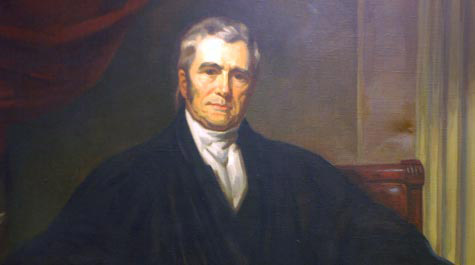
Multiple-Choice Questions.
The primary source below is excerpted from the McCulloch v. Maryland decision. This decision represented a dramatic shift in the powers of government and is considered to be one of the landmark cases for any study of American government. The case surrounds the constitutionality of the National Bank, which was opposed by many states because it was a major source of competition for their banks. Read the excerpt from the opinion below and answer the multiple choice questions that follow.
“That the power to tax involves the power to destroy. . . . If the states may tax one instrument, employed by the [federal] government in the execution of its powers, they may tax any and every other instrument….This was not intended by the American people. They did not design to make their government dependent on the states.” Majority Opinion, Chief Justice Marshall, McCulloch v. Maryland
1. Which of the following was a direct effect of this Supreme Court ruling?
A. The power of the state government was strengthened at the expense of the federal government.
B. The power of the national government remained stagnant following this decision.
C. Federal authorities were allowed to keep the national bank, but were barred from rechartering it.
D. The federal government authority expanded.
2. In writing “consist with the letter and spirit of the Constitution”, Justice Marshall is referring to which clause of the Constitution?
A. Due process
B. Commerce
C. Welfare
D. Necessary and Proper
3. Which of the following would most disagree with Justice Marshall’s ruling?
A. Alexander Hamilton
B. A Federalist Party member from the State of New Jersey
C. A Jeffersonian Democratic-Republican
D. A Whig Party member from Delaware.
And the answers are . . . D, D, and C
What unique vocabulary terms did you see that you were not familiar with? How might knowing these terms help you answer the question?
The entire ruling is available at the Legal Information Institute at Cornell Law School.